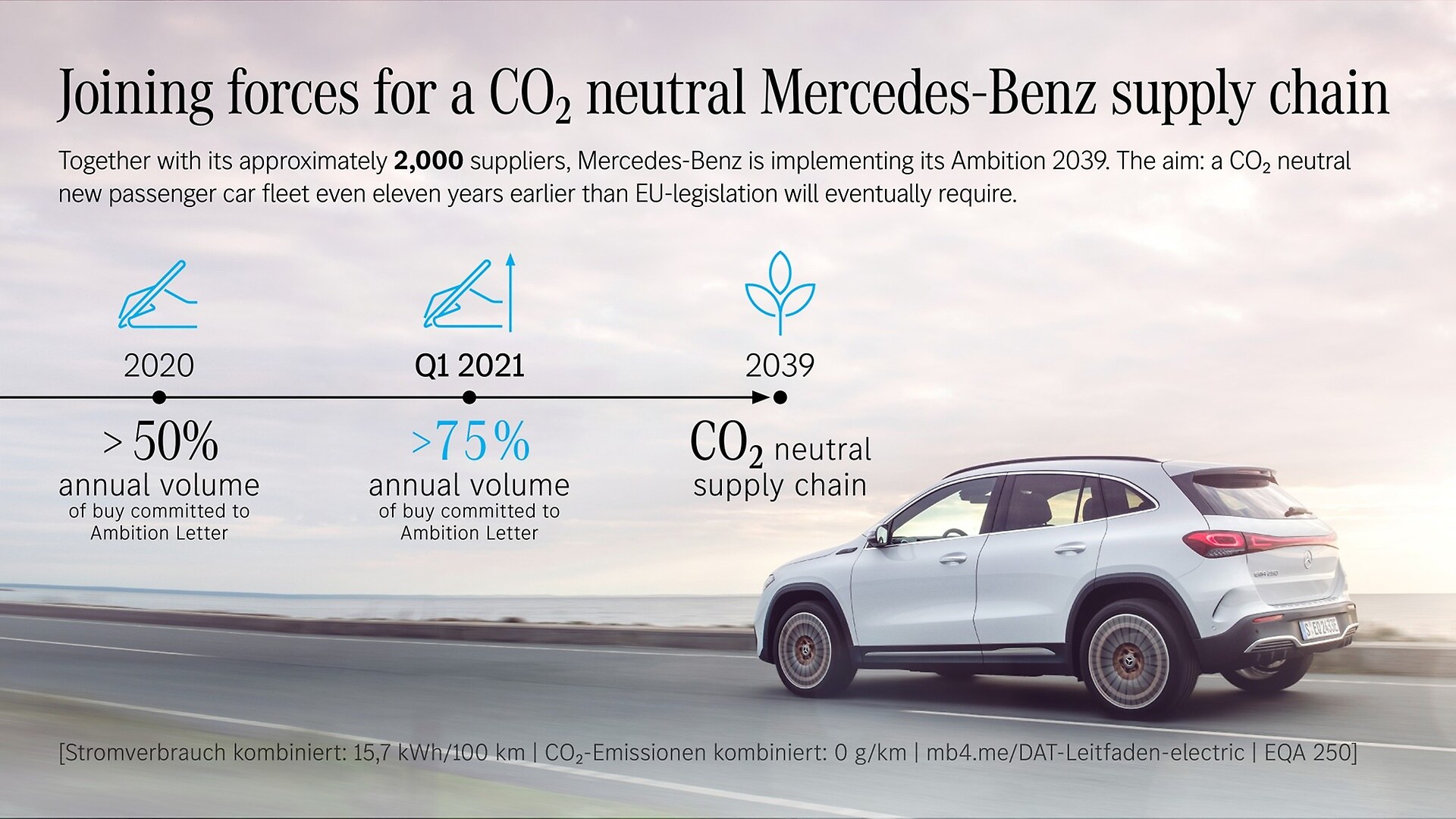March 09, 2021 – Sustainability is the guiding principle of our business strategy and thus the core of our business activities. This also characterizes the cooperation with our suppliers. To assess the sustainability performance of our direct suppliers, we have developed an overarching 'Supplier Ambition Rating' with which we bring together various methods for evaluating climate, environmental and human rights aspects.
As an OEM, we are part of a complex value chain. A significant part of the value creation for the Mercedes-Benz passenger car fleet lies with our suppliers. In our transformation process towards carbon neutrality, our "Ambition2039", we therefore also take into account the sustainability performance of our direct supply partners. This is where the ambition rating comes in: Based on various indicators, we determine the sustainability score of our suppliers and can thus comprehensively evaluate the Mercedes-Benz supplier network. In addition to reducing greenhouse gas emissions, the focus is on the environmentally-friendly use of resources and the socially responsible extraction of raw materials. Starting this year, the results of the ambition rating will be an important criterion for awarding decisions.
Elements of the ambition rating
On the way to a climate-neutral fleet of new passenger cars, we have called on our approximately 2,000 suppliers at Mercedes-Benz to supply us only with carbon-neutrally produced products from 2039 at the latest. A large number of our suppliers - together they account for almost 90% of the annual purchasing volume of Mercedes-Benz AG - have already signed the Ambition Letter and agreed to accompany us on this path. We use a tracking system to track how emissions are reduced over time. In future, we will only consider suppliers who sign the ambition letter when awarding new contracts. You can find more information here
We are currently in the process of commissioning an external service provider to determine the proportion of green electricity that our direct suppliers are already using in their production today.
We use this to create transparency about the carbon footprint of suppliers. Only if we know the environmental impact of our supply chain can we enter into targeted dialog with our suppliers and take measures to reduce greenhouse gases.
We ask our suppliers to provide us with information about the ecological, social and ethical aspects of their business dealings. To this end, we provide suppliers with self-assessment questionnaires via the NQC platform.
We use a self-developed questionnaire to assess our suppliers with regard to the responsible handling of critical raw materials. Human rights aspects are the focus here. The aim is to bring more transparency to the supply chains for raw materials that the company has identified as potentially critical, and to eliminate potential risks.




